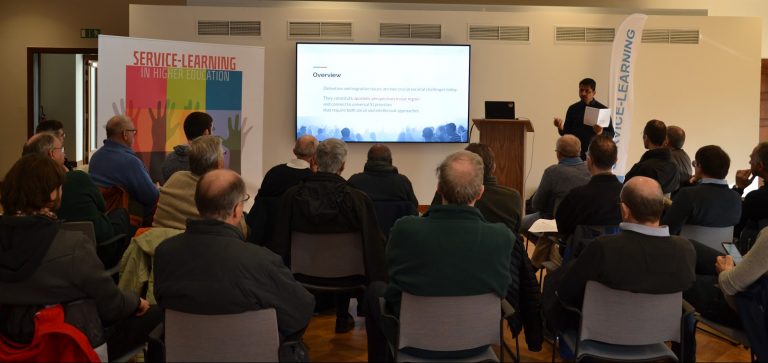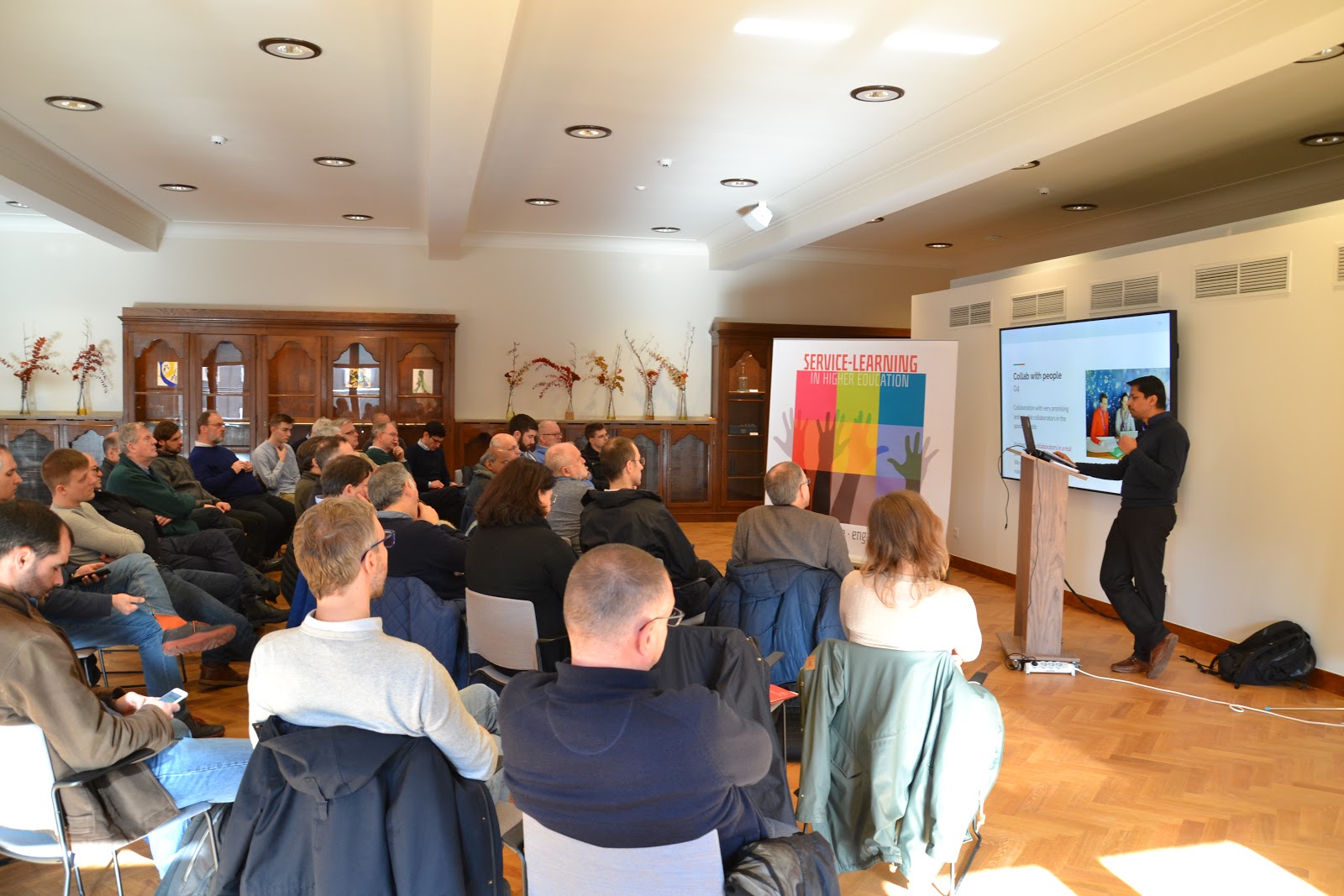
“Service learning is a form of education in which serving, reflecting and learning are central, students serve society by engaging in a specific community,” explains Professor Nicolas Standaert sj, academic director of the service learning project at KU Leuven in the University’s Agora Learning Centre.
The Social Apostolate Delegates visited the KU Leuven during their 2020 annual meeting to learn about the University’s social engagement pilot project.
Service Learning started its first pilot courses in 2017. It aims to support the students academically and personally in order for them to become responsible and critical citizens. This academic year offered the KU Leuven offered six different courses.
 “For example, students of history have done documentation on migrants and sex workers, pharmacy students have gone to care centres, IT students have designed programmes for disabled children. During these courses the students meet the communities or people they are learning about. They end up working alongside them instead of doing voluntary work for them. This is what makes it such an educational experience,” says Standaert.
“For example, students of history have done documentation on migrants and sex workers, pharmacy students have gone to care centres, IT students have designed programmes for disabled children. During these courses the students meet the communities or people they are learning about. They end up working alongside them instead of doing voluntary work for them. This is what makes it such an educational experience,” says Standaert.
Far from being a new academic concept, service learning has been circulating in several Universities in the USA and South America. “Campus Compact, is a programme that is offered in about 1,000 colleges and universities in the USA and has the same kind of vision as service learning: improve community life and educate students for civic and social responsibility,” he continues.
From an Ignatian perspective the program mirrors the Ignatian Pedagogy Paradigm: Context, Experience, Reflection and Action. To witness this first hand, the Delegates were invited to the Prison of Leuven to see who organises these Solidarity Learning courses and who participates in them.
“During an entire semester a group of students met every Monday in the prison to follow the course and reflect and learn about punishment. Twelve of them, four women and eight men, are prisoners, the other twelve study criminology, criminal law or theology at KU Leuven,” explains prison chaplain Geertjan Zuijdwegt in the chapel of the prison.
Geerthan Zujidwegt and his colleague Pieter De Witte have been teaching the courses  since 2017. Their course, ‘Imprisonment as lived reality, was one of the most successful courses of the programme so far.
since 2017. Their course, ‘Imprisonment as lived reality, was one of the most successful courses of the programme so far.
“Each lesson lasts two hours. Lecture alternates with discussion in small groups. All 24 students are assessed in the same way, read the same texts on theoretical and philosophical questions about imprisonment, make the same reflection and write assignments and contribute equally to the conversations. At the end they worked on a collaborative product such as a joint statement or alternatives to imprisonment,” De Witte continues. The concluding reflective text of the students is available online.
The delegates visit to the city of Leuven opened up a discussion to bring together Social and Intellectual Apostolates for the service of the most vulnerable. Rinald D’ Souza SJ and Leo De Weerdt SJ presented their views and suggestions for a closer collaboration with the KU Leuven in the framework of the formation of young Jesuits who come to study in Leuven as well as an increased international collaboration and an increased support from and to Jesuit Refugee Service and the detention ministry.
by Laura Sear

